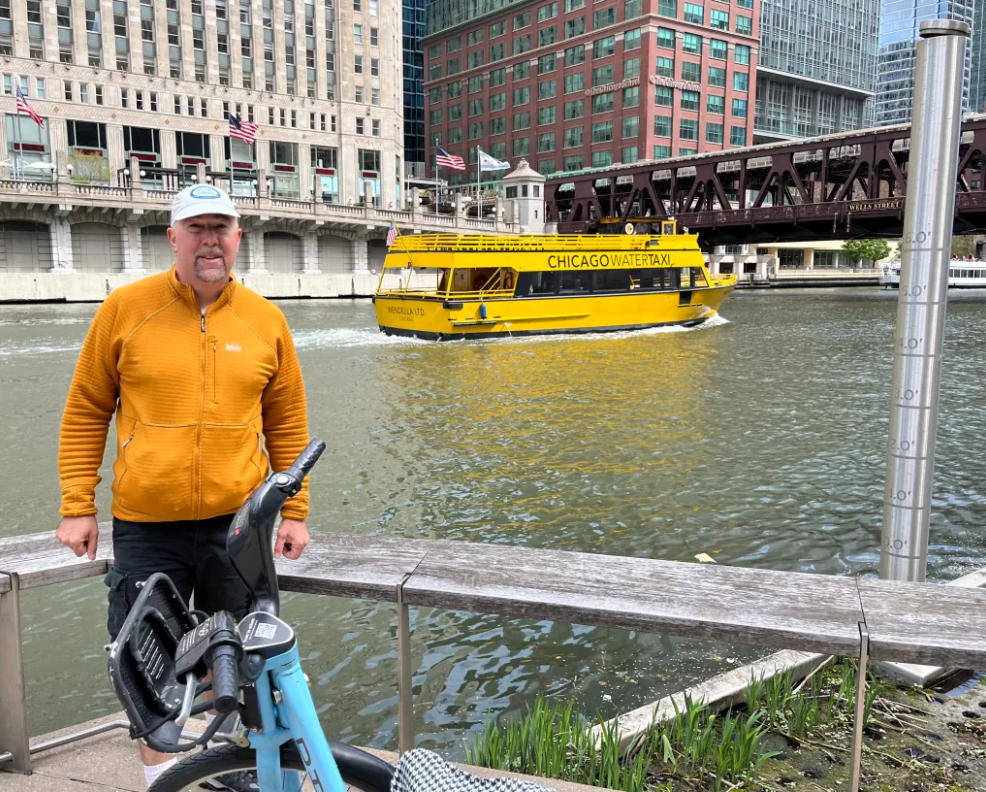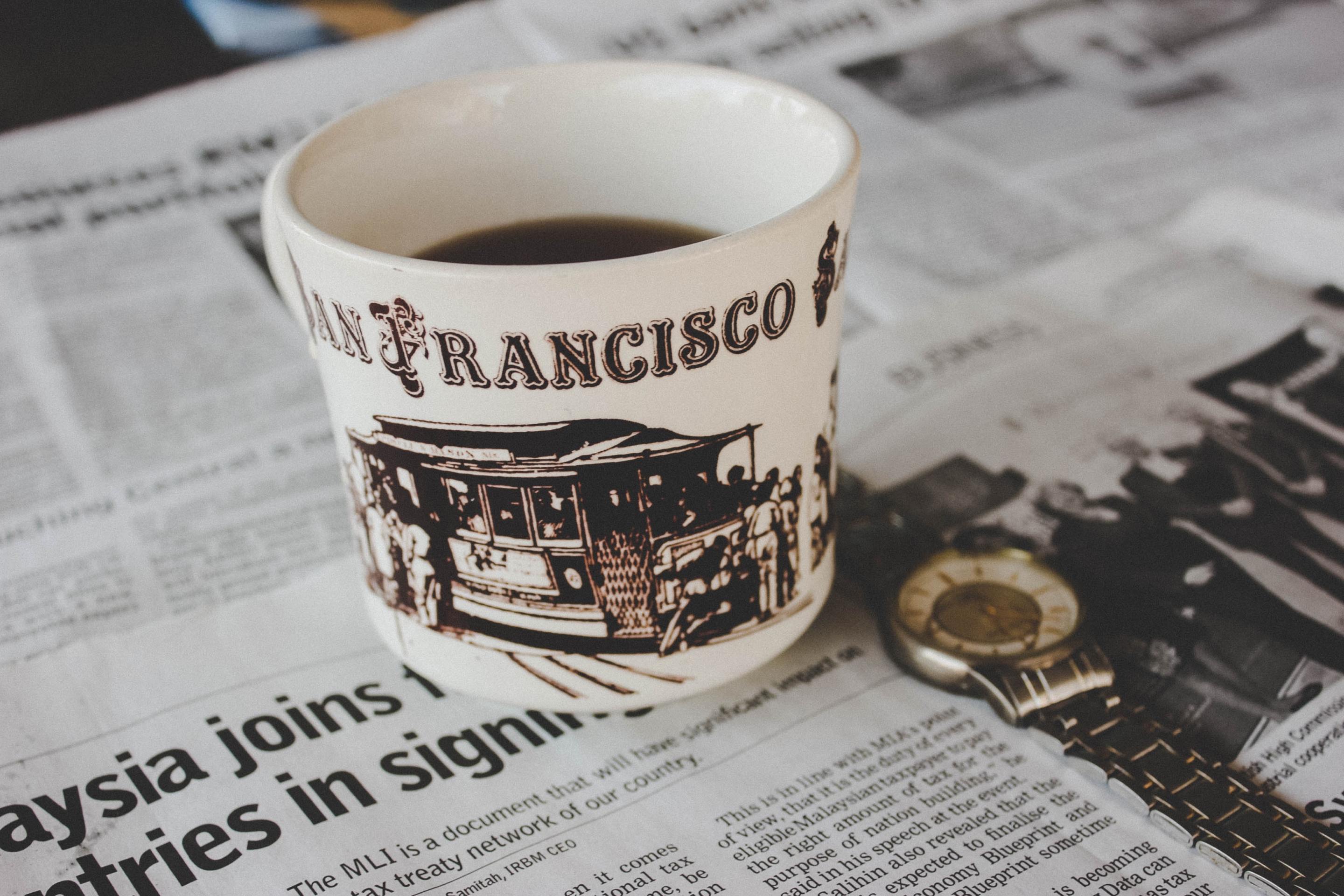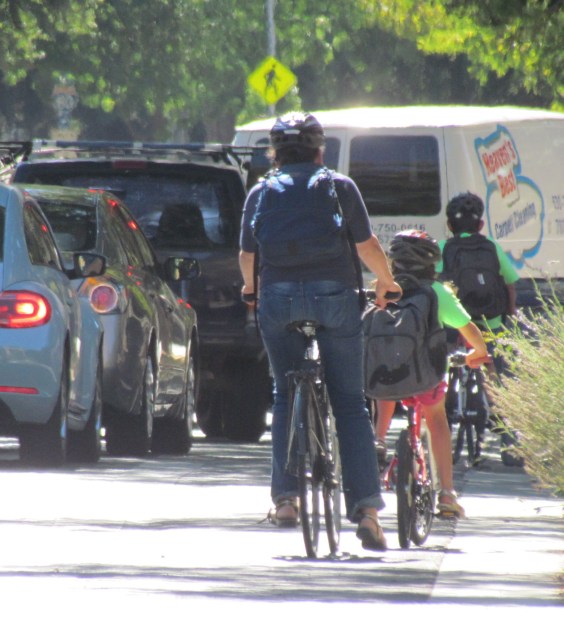MTA Must Act Quickly to Convince Merchants of Parking Plan’s Benefits
1:02 PM PDT on October 14, 2009
 On Clement Street in the Inner Richmond, dusk doesn't bring an end to the search for parking. Flickr photo: bigteetoe
On Clement Street in the Inner Richmond, dusk doesn't bring an end to the search for parking. Flickr photo: bigteetoe The recommendations in the MTA's new parking study, which Streetsblog reported on yesterday, are designed to make it easier for customers to find a place to park when they visit businesses on evenings and Sundays. The study comprehensively examines the demand for parking in all of the city's major commercial districts, aiming to extend meter hours only when and where demand overwhelms the number of available spots. If the MTA doesn't act quickly and strategically to sell the changes to businesses, however, the study's great promise could be overwhelmed by protests from merchants who don't yet see how the plan will benefit them.
"It gives the city more opportunity to just sting the patrons," said
Dallas Udovich, president of the Taraval Parkside Merchants
Association, and owner of Oceanside Sheet Metal.
In interviews with business owners and merchant associations across the
city, it's clear the MTA has a big task ahead of it: conveying to
merchants that extending meter hours beyond 6 p.m. on weekdays and
Saturday, and adding enforcement on Sundays, will ultimately make it
more convenient for their driving customers to park.
"I hope the MTA moves very cautiously on this whole issue and they
had better do their homework, or there will be a revolt similar to what happened in Oakland,"
said Ken Cleaveland, Director of Government and Public Affairs for the
San Francisco Building Owners and Management Association.
The MTA, though, is now armed with a formidable body of data collected during a 90-day citywide study period that it hopes to distribute as widely as possible. The agency did a considerable amount of outreach, conducting informal interviews with many merchant associations, business
owners, residents, and neighborhood groups. Among residents, forty-two percent supported weeknight meter enforcement completely, and an additional 15
percent supported it if certain conditions are met, compared to 40
percent who opposed it. A total of 42 percent of residents supported Sunday
enforcement completely or conditionally, compared to 52 percent who
said "no." While the numbers supporting the changes may seem low, the figures actually exceeded the agency's expectations.
Christopher Duderstadt, who owns Christopher Duderstadt Machine Design near 10th Avenue and Irving Street, said it's important merchants take a closer look at the study. "I can understand how merchants that didn't understand the study would say, 'well, people aren't going to come to my business if they don't have free parking,'" he said, "[but] the reality is, people can't come to their business if there's no parking."
Representatives from merchant groups and community benefit districts (CBDs) in the Castro, the Mission, Noe Valley and North Beach all had concerns about the plan, including impacts on customers and residents. Several also felt the MTA should focus first on tackling disabled parking placard abuse.
Since many of the groups Streetsblog talked to were interviewed by the MTA during the study process, some of their biggest concerns were already addressed in the plan, including extending meter time limits on weeknights and Sundays to four hours, and extending weeknight hours on a per-district basis, depending on demand, instead of increasing enforcement to 10 p.m. across the city.
Though many business groups cited concerns about the plan's impact on residents, Duderstadt said the study strongly suggests that residents will benefit as well. "One of the criticisms of the study is what would be the impact on the neighborhood, would it push commercial customers into the neighborhood? [The MTA] would argue it works just the other direction: if you provide an open space per block, people don't circle the block," causing congestion as visitors look for spots on residential streets.
 Click to expand: Many of the city's most popular retail streets are overwhelmed with drivers looking for parking spaces on Sundays. Download PDF here.
Click to expand: Many of the city's most popular retail streets are overwhelmed with drivers looking for parking spaces on Sundays. Download PDF here. In Union Square, the study found on-street parking is scarce at nearly any hour. Linda Mjellem, a spokesperson for the Union Square Association, said she'd welcome a program that encourages drivers to use the existing off-street parking structures, which are often far from full. In fact, the study recommends "[reducing] hourly meter rates in SFMTA parking lots when and where parking occupancy does not exceed 60 percent," in conjunction with expanding meter hours, which might ultimately nudge drivers toward the structures.
Mjellem touched on an approach that the city has been more open to recently: temporary pilot programs. "I like that they've been willing to pilot some things, and not fix them in cement," said Mjellem. She hadn't discussed the plan extensively with her organization yet, but speaking on her own behalf, Mjellem said she "probably would be open to a pilot" of the parking plan.
Several other merchant associations were similarly wary but not doggedly opposed, leaving the MTA with a crucial window of time to make its case. Stephen Adams, president of the Merchants of Upper Market and Castro, said his group is opposed to any meter enforcement extensions, but could probably live with the longer hours on weeknights. On Sundays, he said, parking isn't a big problem.
Indeed, many merchants said they don't think parking availability is a big issue on evenings and Sundays. The survey results in the MTA's study suggest otherwise, however, as occupancy rates indicated that customers in many districts are struggling to find spaces more than ever when the meters shut down. That may seem like common sense, of course, to anyone who's ever tried to find a parking spot near Clement Street after 6 p.m. or on a Sunday morning for dim sum.
One strategy for winning over businesses might be to do what parking guru Donald Shoup suggests: funnel parking revenue back to the neighborhoods it comes from. Even if a small portion were allocated to maintaining and improving local business district streetscapes, the perception of the plan as a revenue grab by the MTA could change drastically.
"What they should do is give 10 percent of the profits from doing that back to the CDBs, since we're doing the services that the city should be doing," said Debra Niemann, community representative for the Noe Valley Association CBD. "The least you could do is give some of it back." While Niemann is generally opposed to extending parking hours, she said such a change would cause her to drop her opposition.
Asked by Streetsblog about directing some funds to CBDs, or even pairing Muni service improvements to areas where meter hours would be extended, MTA executive director Nat Ford didn't rule out the possibility, but said it's beyond the scope of the study.
"I don't know if we're prepared to answer that at this juncture," said Ford. "The way we've always looked at this whole process is to not make it a neighborhood or political discussion in terms of this study. This study really just looks at the clear data in terms of occupancy, on availability for parking, and the business activity based on hours. It really didn't look at certain areas and whether those investments would go back into those particular areas. That's pretty far down the line in terms of this discussion."
Stay in touch
Sign up for our free newsletter
More from Streetsblog San Francisco
Streetsblog SF editor Roger Rudick offers constructive criticism of Chicago’s downtown bike network
"There were blocks that felt very safe and very secure," he said. "But then you're immediately – voom! – disgorged into three lanes of moving traffic with no protection."
Commentary: There is Zero Ambiguity to the West Portal Tragedy
What happened in West Portal was entirely predictable and preventable. The city must now close Ulloa to through traffic and make sure it can never happen again




